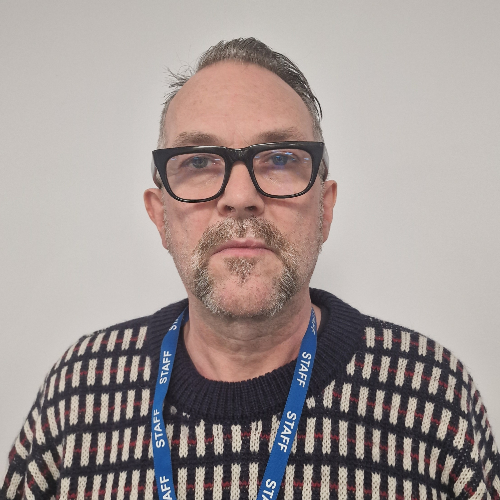
Written by:

Medically Reviewed by:
Last Updated:
March 4th, 2025
Lorazepam Addiction Treatment | Detox and Rehab
Picture waking up each day without the shadow of Lorazepam hanging over you. At Linwood House, we believe you deserve that freedom. We know quitting Lorazepam can seem scary but we’re here to make sure you don’t face it alone. Our supportive team will help you safely through Lorazepam withdrawal and find new ways to handle any issues that are preventing you from living your life to the fullest. With our three-step treatment programme, you will have the best chance at overcoming Lorazepam addiction and reconnecting with yourself and your loved ones.

A fresh start with Lorazepam detox
Using Lorazepam for a long time can make your body and brain rely on it to feel “normal”. If you have ever tried and failed to quit before, you will have seen that this reliance causes cravings and other unpleasant Lorazepam withdrawal symptoms. This is because your brain needs time to adjust and start naturally producing the chemicals which Lorazepam has been providing.
Lorazepam detox at Linwood House ensures that you can cope with withdrawal symptoms until all the drug has left your system and your brain activity has returned to normal. We know how challenging this can be but we have every stage mapped out for you, from a full medical check on arrival to a bespoke detox plan to see you through.
Instead of stopping Lorazepam all at once, we recommend slowly reducing your dose over time. This helps make Lorazepam withdrawal symptoms easier to handle, and along with around-the-clock care and possible medications, it will keep you safe and comfortable until you are feeling better.
Lorazepam withdrawal symptoms and timeline
Lorazepam withdrawal produces similar symptoms to other forms of benzodiazepine addiction, which begin to flare up almost as soon as levels of the drug drop. Common symptoms include:
These grow in intensity gradually over the first few days and then peak around days four to seven. For some people, especially those who have been using Lorazepam for a long time or in high doses, this period can also include more dangerous Lorazepam withdrawal symptoms, including:
- Seizures
- Seeing or hearing things that aren’t there
- Feeling very confused
- High blood pressure
- Dangerously rapid heartbeat
If you attempt Lorazepam detox at home alone, these symptoms can put your life at risk. At Linwood House, our medical team will supervise your withdrawal and give you medicines that will prevent any danger.
The two-week mark is when most people will see the majority of Lorazepam withdrawal symptoms abate but those with long-standing dependencies may experience ongoing difficulties such as mood swings and insomnia. Our medical team will continue to monitor you in this event and help you overcome the last of the symptoms.
Building a new life through Lorazepam rehab
Getting through Lorazepam detox is a huge step towards a healthier future, but it is just the beginning. Now it’s time to focus on staying sober and rebuilding your life. Lorazepam rehab is all about getting to the root of why you started using the drug.
It will help you explore what happened in your life that led you to rely on Lorazepam. Through different forms of therapy, you will develop new skills and insights that will help you change your life so that you no longer need it.
Lorazepam is like a detox for the mind and spirit. It can help purge negative and harmful feelings, thoughts and memories so that you can replace them with new optimism, enthusiasm and a better understanding of who you are and where you want to be.
Lorazepam rehab therapies
Our benzodiazepine rehab treatment programmes bring together various forms of therapy to help you work through the causes and effects of Lorazepam abuse. We offer both traditional and holistic treatment therapies for a comprehensive healing approach:
Individual therapy
This is one-on-one therapy that allows you to dive deep into the reasons behind your Lorazepam use. It is a space to find new, drug-free ways to cope with life’s challenges and get targeted support.
Group therapy
Group therapy offers the opportunity to connect and bond with others undergoing treatment. It is all about fostering a sense of solidarity and support while growing and healing together.
Family therapy
The impact of addiction on loved ones has long been understood but so too has their enormous power in supporting recovery. Family therapy will help bring you all together, provide a space for reconciliation and allow trust to be rebuilt.
Dialectical behavioural therapy (DBT)
DBT is crucial in the treatment of Lorazepam addiction, offering a structured approach to comprehending the reasons behind turning to Lorazepam during challenging times. It equips individuals with effective tools to manage these situations more constructively.
Art therapy
Art therapy provides a creative outlet for expressing emotions that might be hard to talk about. Artistic forms like drawing or painting can all help you process feelings without words, which can be a welcome break from talk therapy.
Yoga therapy
Yoga therapy combines movement and mindfulness to help you relax and reduce stress. It is a holistic approach to improving both your physical and mental health and can help you resist cravings.
Meditation and mindfulness
For millennia, practising meditation and mindfulness has been shown to help you stay calm and focused on the present moment. They can reduce anxiety and support your overall well-being both during Lorazepam rehab and beyond.
Securing your future with aftercare and relapse prevention
Completing Lorazepam rehab and detox are major milestones but maintaining sobriety requires ongoing effort and a solid plan. You will need strategies to help you navigate the challenges and keep moving forward after you leave rehab. At Linwood House, one of the most important parts of our treatment is helping you create a personalised relapse prevention plan that helps you recognise and resist triggers and cravings and live an overall healthier life.
Here are some strategies that will be part of your plan:
Joining therapy and support groups
Attending Linwood House’s aftercare programme (free weekly group therapy for the first year after treatment) and connecting with local groups like Narcotics Anonymous can provide invaluable recovery communities. These can make a big difference in keeping you supported, accountable and motivated.
Discovering new activities
Finding hobbies you enjoy can keep your mind busy and keep you from thinking about using Lorazepam. These hobbies can be playing a musical instrument, playing a sport, practising yoga, or reading and writing—anything that keeps you engaged and happy.
Leaning on your support network
It is crucial that you allow yourself to lean on friends, family and others when things are hard. These people who care deeply about your recovery can offer encouragement and help you through your struggles.
Prioritising healthy living
Eating well, exercising and getting enough rest can all improve your overall well-being, making it easier to stick to your recovery goals.
Trigger management
This means being aware of the situations, people and places that may tempt you to use Lorazepam again. Having a plan to deal with these triggers can then help you stay strong and focused and ultimately remain sober.
Begin treatment for Lorazepam addiction today
If you are ready to change your life then Linwood House is here for you. We have helped so many people achieve their dream of recovery and we have all the experience and expertise you need to reach your goals. Contact Linwood House today to find out more about our Lorazepam addiction treatment programmes.



